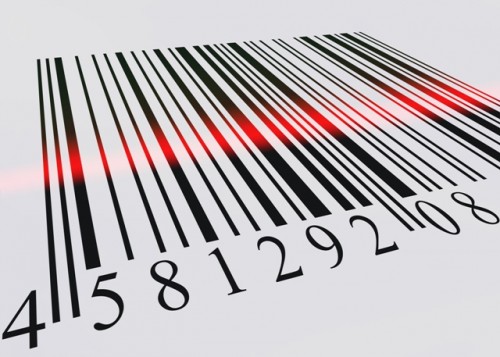Most companies can’t imagine how their daily operations would look like in the absence of a fully functional barcode system. Barcodes have been around for decades in a row and have managed to help millions of businesses improve their work flow, reduce or eliminate losses and save time and money. These are all incredible advantages that can’t and shouldn’t be overlooked.
According to Scholarpedia, barcode scanning technology is extremely important because it enables most industries to develop and implement cheaper, more profitable and more accurate applications. For example, barcode systems allow delivery companies to keep track of every single package that enters or exits their warehouses. This simple and inexpensive solution leads to a lower incidence of lost items/theft cases.
But barcodes are only a piece of the puzzle. In order to make the most of all the benefits that this system has to offer, users must also invest in basic hardware elements enabling them to scan and interpret the information held by barcodes. This is precisely why choosing the best barcode scanner is a task that shouldn’t be taken lightly. If you are not familiar with the type of equipment designed to automate your daily processes, you may be wondering: what are my options in terms of barcode scanners? In short, these products can be divided into 4 main categories, based on their functionality and specific features.
Highlights of Contents
Pen
Pen barcode scanners are incredibly sleek and versatile. Due to their reduced dimensions and portability, they represent the perfect choice for people who want to carry their scanners around and ditch heavy equipment. Pen-style models comprise a photodiode and LED light. The wand-like object is passed over the barcode; the LED light starts to illuminate the black-and-white bar, while the photodiode assesses the light reflection to determine the color and width of each bar. Pens are suitable for quick scans, but because of the fact that they are utilized by human workers they demand a certain level of experience and practice.
Laser
Laser scanners are a bit more advanced than a pen-like model. They can either be a part of handheld device or be incorporated by a larger scanning unit. Here is how they work: inside the unit, laser beams get shot towards an interior mirror. Due to the movement of the mirror, the laser gets in contact with the barcode by following a linear trajectory. The light is then reflected to an incorporated diode that estimates the reflection level. This value is then translated into a DRO (digital signal readout).
CCD
For those looking for barcode scanning equipment that is a bit pricier but much more accurate, CCD scanners could be the best choice. Charged couple devices (CCDs) comprise hundreds of small-scale LED lights that get shot onto barcodes that need to be read. A special sensor conducts a voltage measurement to create and deliver the barcode’s digital snapshot. The whole process is simple and time-effective, leading to accurate, remarkable results.
2D Camera
There are two types of barcoding systems: 1D and 2D ones. While 1D systems are compatible with most types of scanners, 2D are a bit more complex due to the fact that they store more data, and thus require special scanning tools. 2D cameras are suitable for this type of two-dimension systems; just like CCD models, they comprise small-scale lights. The difference is that in this case, the lights are carefully arranged in tiny rows. The lights flashing onto a certain barcode create a digital picture that is later on sent to a software in order to get decoded.
According to Street Directory, barcode scanners can be separated in two categories: contact models (these readers must come close to the barcode or actually touch it to scan the data) and non-contact models (these readers use a stationary beam or moving beam to scan data and do not have to be close to the barcode.)
What Are the Benefits of Barcode Scanners?
According to Chron Small Business, the implementation and utilization of barcode scanners has revolutionized the way in which we do business. The technology behind this type of equipment has led to a reduction of human errors associated with manual data entry. Moreover, according to the same source, speed and accuracy are two other advantages linked to barcode scanners that should be taken into consideration. Due to the fact that scanners can also be connected with an improved work flow, faultless inventory control and reduced costs, they are seen as indispensable allies for most industries.
Why Should You Invest in a Complete Package?
When it comes to selecting the best tools for your business, compatibility, price and overall effectiveness are only three of the most important factors that you should focus on. The good news is that you don’t have to waste time and money running across town to get all the piece of equipment that you may need to improve your barcode workflow. The complete hardware brought to you by Shopify responds to all your needs and demands and includes every single item that you may require to ensure an amazingly fulfilling checkout experience for all your clients.
